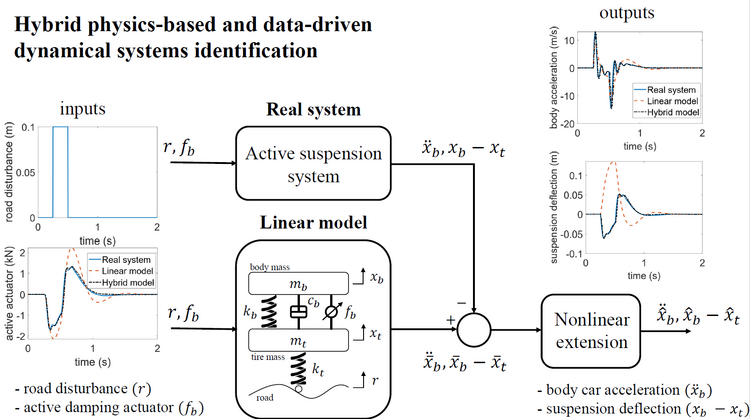Hybrid physics-based and data-driven dynamical systems identification using kernel-based methods

| Led by: | Udo Nackenhorst |
| Team: | Jorge Urrea |
| Year: | 2022 |
Many real-life systems and phenomena are nonlinear. Their behavior can often be approximated by linear models that are easy to understand and interpret. Unfortunately, linear approximations are only valid for a given input range. One remedy would be developing a nonlinear model that captures a broader range of operating conditions. However, developing sophisticated nonlinear models that capture the real system dynamics reasonably is a demanding task. Additionally, linear systems are better understood than nonlinear ones.
This project focuses on exploring the different alternatives to assemble so-called hybrid physics-based and data-driven dynamical models and exploring their performance capabilities in engineering tasks such as reliability analysis or closed-loop control. The idea is to combine an optimal linear representation of the system under study-- e.g., optimal in the least square sense-- and extend it to adopt so-called kernel models that can "learn" the system's unmodeled (nonlinear) dynamics. The resulting model is a nonlinear one composed of linear and nonlinear parts. The linear part can be constructed based on some known physics of the real system, which makes it interpretable. The nonlinear part can be identified based on, e.g., measured data computing the error between the linear approximation and the real system. Some well-known kernel models, widely used in Machine Learning applications, could be adopted for its construction, e.g., exponential, square exponential, Matern with parameter 3/2 or 5/2 kernels.


